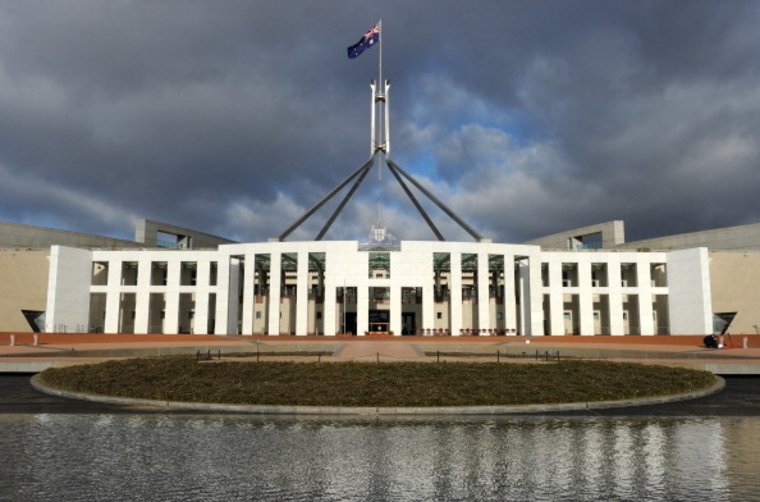Treasurer Josh Frydenberg yesterday delivered a sobering economic statement to Parliament. In stark contrast to the premature "back in the black" celebration just 12 months ago, the Treasurer detailed the "significant increase in government debt which will take many years to repay". In the absence of any meaningful scrutiny from the opposition, the coronavirus pandemic has effectively given the government a free cheque without the burden of justifying the severe measures it has taken both in terms of the lockdown and the fiscal response.
 Total Australian debt has already blown out to $618 billion, up $50 billion since December. The increase in borrowing has been a result of a $11.3 billion collapse of government revenue compared to the pre-COVID-19 forecasting. Total debt is set to spiral over the coming years as the government's spending commitments in response to COVID-19 get underway and as government revenue is further damaged by the ramifications of the lockdown and reduced investment.
Total Australian debt has already blown out to $618 billion, up $50 billion since December. The increase in borrowing has been a result of a $11.3 billion collapse of government revenue compared to the pre-COVID-19 forecasting. Total debt is set to spiral over the coming years as the government's spending commitments in response to COVID-19 get underway and as government revenue is further damaged by the ramifications of the lockdown and reduced investment.
Seven million Australians have received the first $750 instalment of household support, 1.4 million are receiving the JobSeeker unemployment benefit, and 835 thousand businesses employing 5.5 million workers have enrolled for the JobKeeker wage subsidy. This means that nearly one in three Australians in the labour force (65 per cent) are now dependent on the taxpayer by either being directly employed by government (15 per cent), receiving JobSeeker (10 per cent) or JobKeeper (40 per cent).
In response to the Government's unprecedented $320 billion package, the opposition's main concern has been that they haven't drowned Australia in debt fast enough. This lack of scrutiny has left several aspects of the government's response unchallenged.
The most serious problem is that the JobKeeper program has only papered over the economic cracks that will be revealed at the end of September when the JobSeeker payments cease. The scheme has created what Deloitte Access Economics have termed zombie companies, many of which were struggling before the lockdown even began. The full economic impact of the lockdown will only start to become apparent once those businesses relying on JobKeeper are forced to sink or swim.
The application of JobSeeker to part-time and casual workers earning less than $1,500 a fortnight has been poorly planned. The requirement for businesses to pay these workers the full $1,500 regardless of hours worked has created very foreseeable work incentive issues, with businesses reporting difficulties getting their staff to take work, and workers working additional hours for no increase in pay. New Zealand's system that allows businesses to pay these workers their normal wage and put the remaining subsidy to other wage expenses should have been followed.
The government's household support payments consisting of two instalments of $750 to those receiving government support at a cost of $8.8 billion has also been poorly targeted. The announcement of that policy came ahead of the more highly targeted temporary increase of JobSeeker and the introduction of the JobKeeper payment. The government has proved itself unwilling to spend political capital to rein in the poorly targeted scheme in the interest of taxpayer's money.
But the question now will be how the government plans to repay their massive expansion in debt. Frydenberg was right when he stated, "Australians know there is no money tree. What we borrow today, we must repay in the future". The problem for the Coalition is that contrary to Frydenberg's suggestions, the Coalition's budget repair work since forming government in 2013 does not provide the blueprint for the way forward.
The business as usual approach of exercising spending restraint and waiting for government revenue gains to chip away at the deficit is simply not an option. The government needs to take bold steps to ensure that the newly acquired debt does not get out of control. While interest rates are low now, there is no guarantee what the cost of borrowing will be five to ten years from now. Borrowing costs will also increase should Australia lose its triple-A credit rating. If it took the government seven years to return the budget to surplus before COVID-19 in a period of economic growth, it is very unlikely that the debt repayment will have even begun before interest rates rise.
The sobering truth is that there is no easy way out of the fiscal situation. Importantly, Fydenberg emphasised the necessity of productivity-enhancing reforms, cutting red tape, and reform of the taxation and industrial relations systems. It is paramount that the Government's rhetoric is backed up by real action in these areas. But with the size of the deficit and debt on the horizon, the crucial tool of budget repair was a glaring omission: the necessity of reining in wasteful government spending.
No comments:
Post a Comment